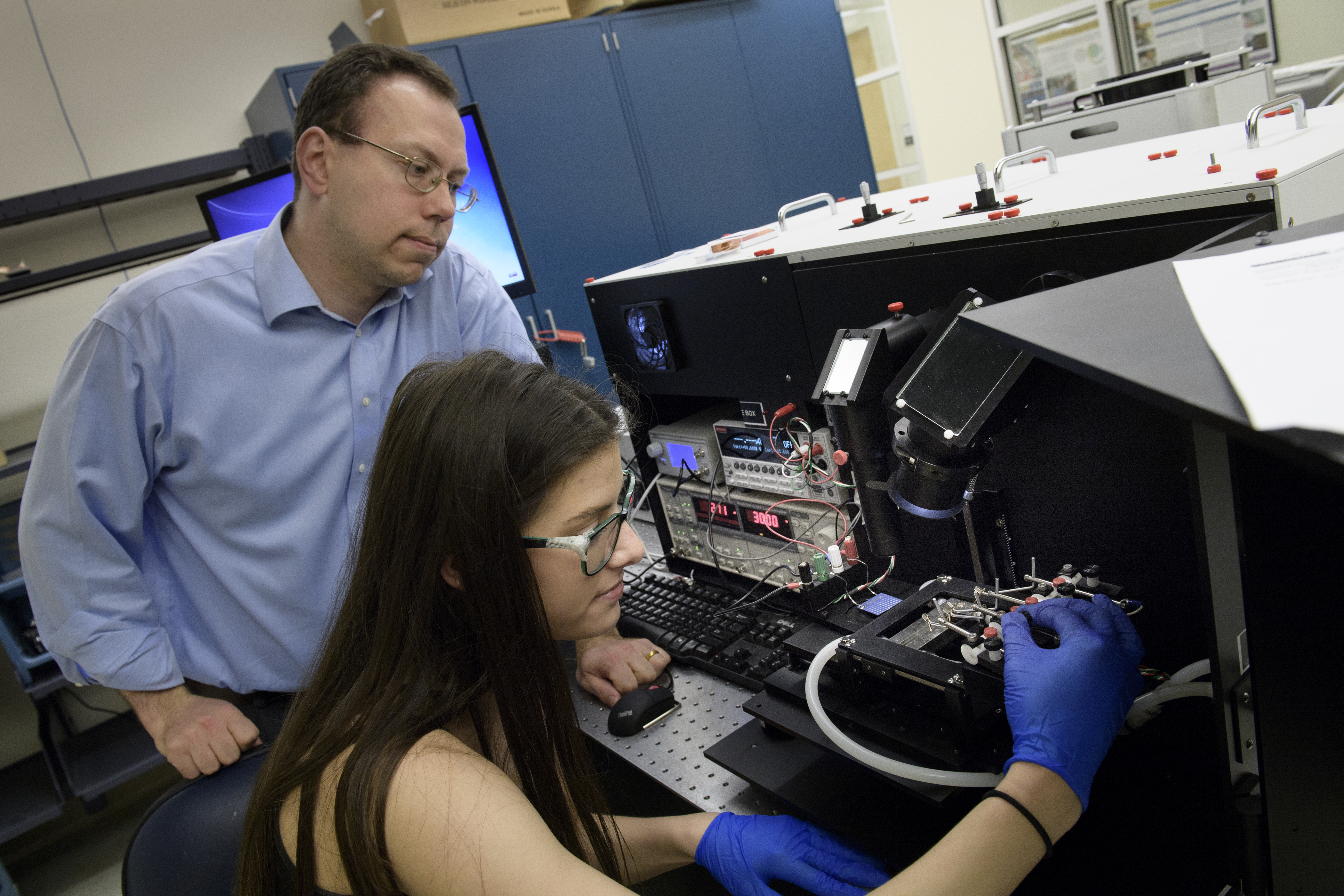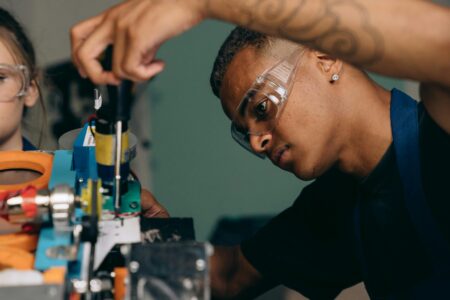In today’s dynamic job market for Electrical and Computer Engineers (ECEs), a good degree is no longer enough. Employers seek graduates with industry-ready skills and the ability to translate theoretical knowledge into practical solutions — and they must do both with competence and creativity. Purdue University‘s Project-Track Master’s Program in Electrical & Computer Engineering addresses this need by equipping students with the technical depth, design experience, and professional skills coveted by leading companies.
Just ask Dikshit Jain, an MS in Electrical and Computer Engineering student who landed a summer internship at Apple. “Pursuing the MS significantly boosted my employability prospects,” he says. “The programme’s structure, which closely simulates an industrial project environment, prepared me well for real-world challenges. The hands-on project experience, coupled with the regular recitations and structured assignments, helped me develop both technical and soft skills essential for industry success.”
Purdue University, consistently ranked among the top 10 public universities nationwide, has a well-deserved reputation for academic excellence and impactful research. It has two colleges ranking in the top four nationally and graduates the most STEM majors compared to its peers.
At the heart of this university lies the Elmore Family School of Electrical and Computer Engineering (ECE), Purdue’s largest academic unit and the nation’s premier ECE department. Its innovative Project-Track Master’s Programme bridges the gap between theory and practice, preparing students for success in industry or further research.

Source: Purdue University
Project-based learning for industry readiness
The Project Track MS-ECE sets itself apart by including a multi-semester team design project. Here, students tackle real-world challenges aligned with emerging technologies or societal issues like healthcare, energy, or the environment. This allows them to build technical depth within their chosen fields while collaborating with peers from diverse ECE backgrounds on a project with real-world impact. The result? A strong portfolio showcasing their abilities, highly sought after by both software and hardware design companies.
Alongside this project, there are many other avenues to hone essential professional skills — like writing, presentation, and project management — that are critical for career advancement. Guest lecturers, including high-level executives and CTOs, often share valuable insights and long-term industry perspectives. There are opportunities to take part in company-mentored projects and corporate internships as well.
For Jain, the programme’s focus on practical problem-solving and communication proved invaluable. Weekly recitations gave him a deep understanding of the project lifecycle, from conception to execution, and honed Jain’s ability to effectively articulate his progress and challenges. “Additionally, the support from faculty and collaboration with peers simulated a professional environment, which enhanced my readiness for the job market,” he says.
Such support is crucial for international students who often face unique challenges entering the US job market. Purdue’s Project Track bridges this gap. Unlike traditional coursework-only or research-focused thesis tracks, the Project Track provides an industry-relevant experience that resonates with American employers and prepares students to thrive in the US job market — something Anisha Jana can attest to.
“One of the key components of the Project Track is the extensive project work,” she says. “Purdue’s ECE programme maintains strong ties with the industry. Throughout the course, there were numerous opportunities to attend seminars, and networking events with industry leaders and alumni from Nokia, Micron and many more. The skills I developed made me a competitive candidate in the job market, and I secured an internship at AMD (Advanced Micro Devices).”

Source: Purdue University
A community that has your back
From the first day, Purdue equips Project Track students for success. The ECE Graduate Office and Project Track programme advisors provide personalised guidance, helping students tailor their academic programme to their specific interests and career goals. Purdue’s Center for Career Opportunities (CCO) goes a step further by connecting students with industry professionals — who are often Purdue alumni — through career fairs and the Industrial Roundtable event.
“The ECE department’s faculties were always there to help,” Jana says. “They were ready to answer questions, explain course material, and guide us through projects and research. Their knowledge and support clarified difficult topics and helped to overcome academic challenges.”
Jain agrees. “The career fairs provided crucial support in resume building, interview preparation, and connecting with potential employers,” he says. “These resources, combined with the supportive faculty and collaborative environment, played a vital role in my achievements.”
The best part? The Project Track programme was developed with input from an industry advisory board to ensure the curriculum remains cutting-edge. Many Project Track instructors have extensive industry experience, and graduate-level courses are continuously updated to reflect the latest research and industry collaborations.
With such features, it’s little wonder Purdue ECE graduates go on to thrive in the field. “I would highly recommend Purdue University’s ECE Project Track MS to other international students,” Jain says. “The programme’s robust curriculum, strong industry connections, and emphasis on practical experience provide a solid foundation for a successful career.”
Apply to the Project-Track Master’s Programme in Electrical & Computer Engineering today.
Follow Purdue Engineering on Facebook, X, Instagram, YouTube, and LinkedIn













